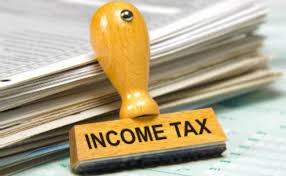 NEW DELHI: The Central Board of Direct Taxes (CBDT) has refused to grant any relief to those black money declarants who failed to submit their first installment of tax and penalty under the IDS owing to personal emergencies or liquidity crunch.
NEW DELHI: The Central Board of Direct Taxes (CBDT) has refused to grant any relief to those black money declarants who failed to submit their first installment of tax and penalty under the IDS owing to personal emergencies or liquidity crunch.
The policy-making body of the Income Tax department made it clear that such condonation of delay in making payments by the deadline of November 30, 2016 will be “discriminatory” against those declarants of the Income Disclosure Scheme (IDS) who adhered to the deadline and paid the tax, surcharge and penalty on the stash declared by them.
The Board issued an order Tuesday clarifying its position after some declarants who have paid (fully or partly) the first installment either belatedly, after November 30 last year, or have not yet made the payment, requested it to extend or provide relaxation in the due date.
“The board after considering the matter, is of the view that either condoning the delay in making payment of first installment by the defaulters who have not paid any amount till now or further extending the date beyond the due date for regulating/facilitating the payment of liabilities under IDS merely to accommodate a few, especially when most of the declarants had abided by the prescribed scheduled date, does not merit consideration.
“It is noted that IDS does not provide for levy of interest on delayed payments, and hence, granting such a condonation to the defaulters may be discriminatory against the declarants who made it a point to adhere to the prescribed time schedule,” the CBDT order said.
It added that IDS declarants were “well aware of the payment schedule which they were required to follow.”
It added that the government amply advertised the IDS scheme through media campaigns and awareness programs and people choosing to come clean and declare their black money under the IDS were “suitably informed of the legal consequences arising from non-compliance of payment schedule.”
Hence, it said, any delay by the declarants on grounds like personal emergency, lack of liquidity, confusion about the due date, rush at banks and others is “solely attributable to lack of initiative or timely action on the part of the concerned declarants and hence does not justify condonation.”
It added that condonation of delay in payment due to these reasons “shall not be feasible”, clarifying the situation once and for all.
However, the order said, all such cases where the declarant made the full payment by due date and was acknowledged by the bank but it was later intimated by the bank that fund transfer did not materialize within the prescribed timeframe and money was either returned back to the declarant or credited to government account after December 5, 2016, will qualify for condonation of delay in a case-to-case basis and based on specific merits.
In such cases where the amount did not get credited to the government exchequer due to banking issues, the CBDT said, a declarant had “absolutely no control.”
The CBDT, early this year, had made it clear through an order that any payment of first installment made by November 30 will be valid if the amount was credited even by December 5, 2016.
Under the IDS 2016 scheme, a declarant was required to pay the first installment of the 25 per cent of total liability of tax, surcharge and penalty on or before November 30 last year.
The second similar amount is to be paid by March this year and the remaining 50 per cent by September 30, 2017.
The government had last year come out with a 4-month long Income Disclosure Scheme, between June 1 and September 30, 2016, to give an option to domestic black money holders to declare their unaccounted wealth and come clean by paying 45 per cent tax and penalty.
The government had revised the figure of actual declarations received and taken on record under IDS and it was stated to be Rs 67,382 crore made by 71,726 declarants. -PTI





